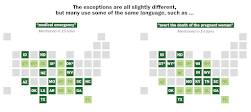Ron Elfenbein, MD, 49, owned First Call Medical Center and Chesapeake ERgent Care, which operated multiple drive-thru COVID-19 testing sites. He instructed employees, in addition to billing for COVID-19 tests, to bill for high-level evaluation and management visits, according to an Aug. 4 Justice Department news release. Dr. Elfenbein ordered the high-level visits to be billed for all patients, including those who were asymptomatic, getting tested for their employment requirements or being tested so that they could travel, according to the release. Dr. Elfenbein was accused of submitting false claims for tens of thousands of high-level visits that were ineligible for reimbursement.
As analyzed by Husch Blackwell:
[U]nlike some CPT codes, E/M CPT codes are imprecise. There is purpose in E/M CPT codes’ imprecision in that it allows physicians flexibility to exercise their best judgment given the multitude of factors that go into medical decision-making.
But that imprecision in E/M CPT codes makes for difficult federal prosecutions. As the court held in overturning Dr. Elfenbein’s convictions, CPT codes’ “imprecision does not necessarily integrate well with the clear notice and due process guarantees of our criminal law” and “where the relevant CPT codes and related definitions are ambiguous and subject to multiple interpretations, problems clearly arise.”
Does this mean DOJ can't win ambiguous-CPT code cases? Not at all (from Husch):
The court was careful to make clear that it is possible for the Justice Department to successfully prosecute defendants who take advantage of ambiguous CPT codes, but that such prosecutions must show objective falsity in a way the prosecutors failed to do in Dr. Elfenbein’s trial. The “Government sails in shallow waters when it prosecutes a case of this type; these cases require careful navigation,” wrote the court.
To make its point, the court pointed to several cases in which the Justice Department was able to navigate ambiguous waters, including one E/M CPT case in which the prosecution’s expert testified the medical judgment was “not even close to being properly classified” at the code’s level. And so, while prosecutions based on ambiguous CPT codes are clearly an uphill battle for the Justice Department, they are not insurmountably uphill.
The district court's 90-page opinion is here.



















